In the Eastern Orthodox Church, the feast of the Resurrection of Jesus, called Pascha (Easter), is the greatest of all holy days and as such it is called the "feast of feasts". Immediately below it in importance, there is a group of Twelve Great Feasts (Greek: Δωδεκάορτον). Together with Pascha, these are the most significant dates on the Orthodox liturgical calendar. Eight of the great feasts are in honor of Jesus Christ, while the other four are dedicated to the Virgin Mary — the Theotokos.
The Twelve Great Feasts are as follows (note that the liturgical year begins with the month of September):
- The Nativity of the Theotokos, 8 September
- The Exaltation of the Cross, 14 September
- The Presentation of the Theotokos, 21 November
- The Nativity of Christ/Christmas, 25 December
- The Baptism of Christ — Theophany, also called Epiphany, 6 January
- The Presentation of Jesus at the Temple, 2 February
- The Annunciation, 25 March
- The Sunday before Pascha (Easter) — the Entry into Jerusalem or Flowery/Willow/Palm Sunday
- Forty Days after Pascha (Easter) — the Ascension of Christ
- Fifty Days after Pascha (Easter) — Pentecost
- The Transfiguration, 6 August
- The Dormition (Falling Asleep) of the Theotokos, 15 August
Besides the Twelve Great Feasts, the Orthodox Church knows five other feasts that rank as great feasts, yet without being numbered among the twelve. They are: the Circumcision of Christ (1 January), the Nativity of St. John the Baptist (24 June), the Feast of Saints Peter and Paul (29 June), the Beheading of St John the Baptist (29 August), and the Protecting Veil of the Theotokos (1 October).




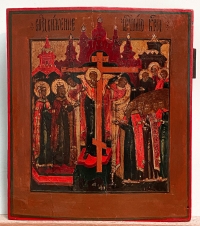

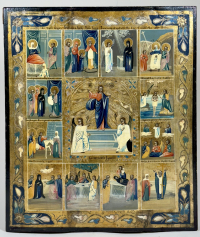
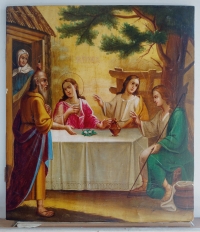
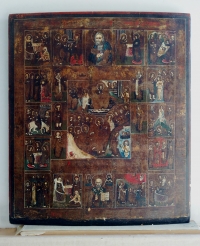
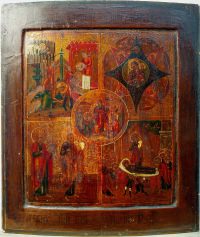
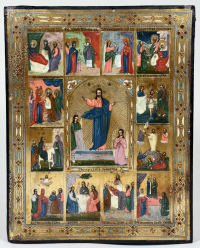
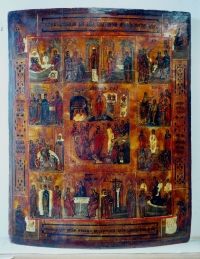
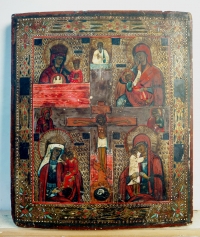
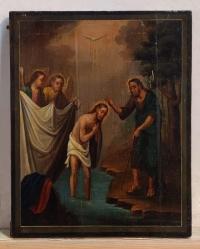
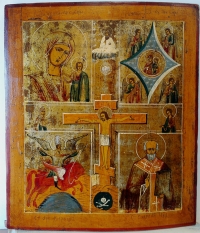
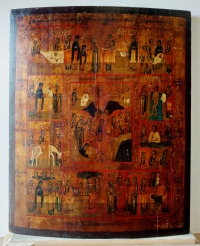

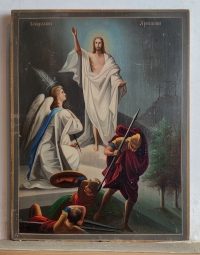



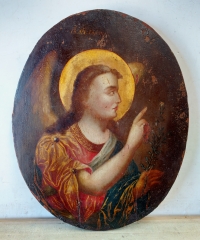
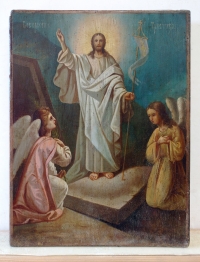
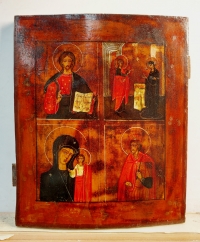
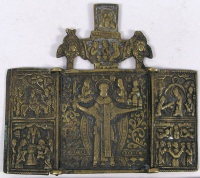

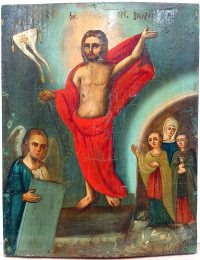


 Поменять язык на русский
Поменять язык на русский 